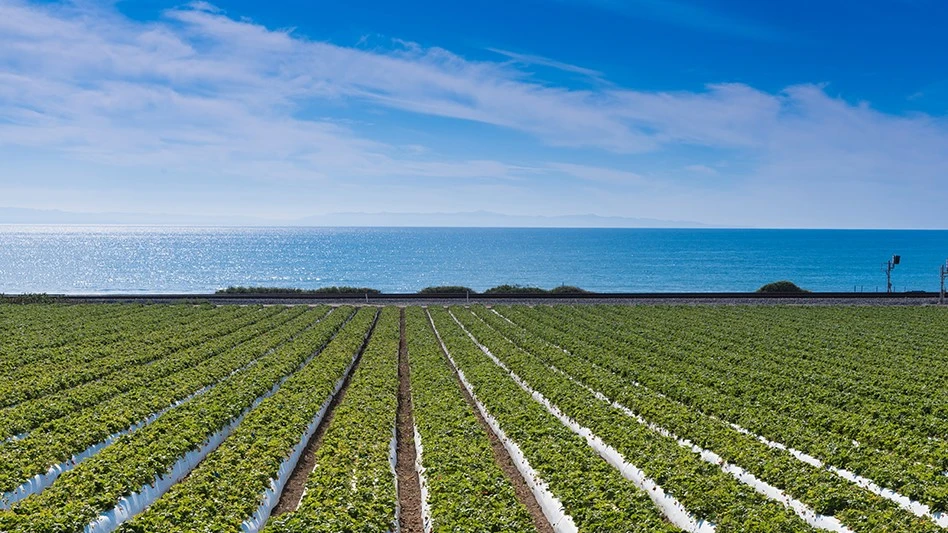
jaflippo | stock.adobe.com
Every year, an estimated 2.5 million tons of plastic mulch--typically from the agriculture industry—is disposed of in landfills, tilled into the soil or incinerated. With no sustainable end-of-life options for the material, a rise in the use of plastic mulch has resulted in global terrestrial and aquatic pollution.
Washington State University (WSU) hopes to find alternatives to or viable markets for plastic mulch through a new project aimed toward advancing soil-biodegrading mulches and developing innovative methods for recycling the material.
The project is funded by an $8 million, four-year Special Crop Research Initiative grant from the U.S. Department of Agriculture’s National Institute of Food and Agriculture
According to the university’s College of Agricultural, Human and Natural Resource Sciences, the program will focus on strawberries as a model crop because of their popularity throughout the country, as well as their ability to acclimate to different weather situations and soil systems. Scientists, extension specialists and growers in California, Florida, Nebraska, and Washington will all participate. Companies such as Driscoll’s and Natureripe are also collaborating on the project.
Plastic mulch is long black plastic strips laid down in fields to suppress weed growth, optimize soil temperatures, reduce water loss and produce higher yields of clean fruits and vegetables free of soil debris. Its usage leads to significantly reduced herbicide application, fewer crops lost to rot from soil contact, a jump start on the growing season, yield enhancements and improved profitability.
“Growers are really dependent on plastic mulch,” says Lisa DeVetter, a department of horticulture associate professor, in a WSU article announcing the program. “Every year, tens of thousands of acres of mulch are put on soil across the country, but the plastic mostly winds up in landfills and takes hundreds of years to degrade.”
DeVetter, the lead project investigator, has collaborated on plastic mulch solutions for several years, frequently focusing on improving knowledge of soil-biodegradable mulch.
Soil-biodegradable mulch currently can’t be used in organic fields because it contains non-bio-based and synthetic materials forbidden in U.S.-certified organic production. Growers are also concerned about its ability to fully biodegrade in soils and the potential long-term economic implications of degraded soil, researchers say.
The research team will look at methods for removing debris from the plastic and new technologies for recycling debris-laden plastic. They’ll also study ways to build the infrastructure necessary to handle potentially huge volumes of mulch, and how to incentivize more sustainable waste management behavior.
This is the first time a research project will combine recycling and soil-biodegradable efforts to help reduce the tonnage sent to landfills and the resulting environmental impact, WSU says.
Latest from Waste Today
- Sourgum launches services in Mississippi
- CenterPoint Energy invests in RNG made from Minnesota food waste
- Brightmark, Lewis Salvage partnership processes 1M pounds of medical plastics
- Eco Waste Solutions will deliver waste disposal system to US Air Force
- Teaching kids the value of recycling
- GreenWaste appoints CEO
- CHaRM facility opens in Fairhope, Alabama
- Liebherr to exhibit at upcoming IRPT event





